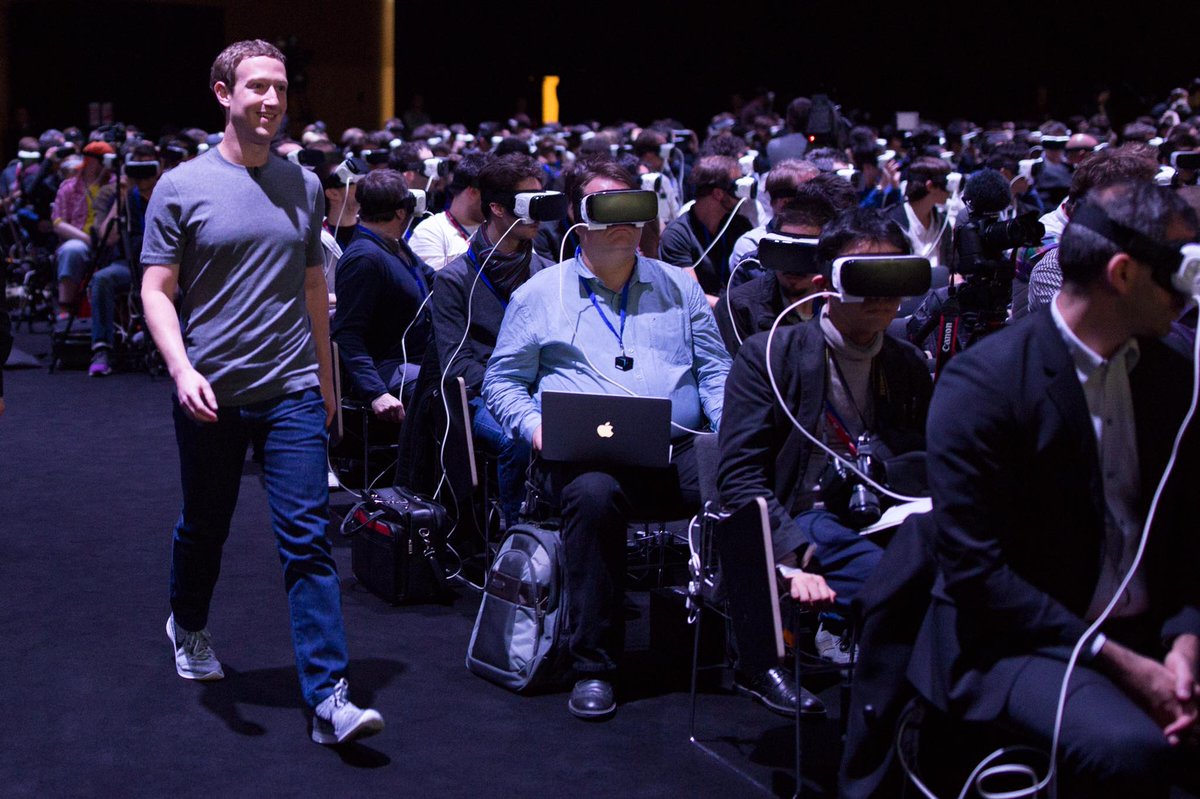Channeling Nicholas Carr’s comments on the recent Mark Zuckerberg “Building Global Community” manifesto, I will say this: The answer to all technologically enabled human problems is not more technology. Sometimes the system itself is the bug, the fatal error.
In a Financial Times piece, Yuval Noah Harari is more hopeful on the Facebook founder’s globalization gambit, not thinking his intentions grandiose but believing them largely praiseworthy if decidedly vague. The historian does caution that social-media companies would need to alter their focus, perhaps sacrifice financially, to actually foster healthy, large-scale societies, a shift that seems fanciful.
Harari thinks we’d likely be safer and more prosperous as a world community, which isn’t a sure thing, but even if it were, many forces are working against transitioning humans into a “global brand.” If Harari is correct, Facebook’s place in that scheme would likely be minute–or perhaps it would serve as an impediment despite Zuckerberg’s designs.
Regardless of where you stand on these issues, Harari’s writing is, as always, dense with thought-provoking ideas and enlivened by examples plucked from centuries past. One example, about the downside of residing in cyberspace rather than in actual space: “Humans lived for millions of years without religions and without nations — they can probably live happily without them in the 21st century, too. Yet they cannot live happily if they are disconnected from their bodies. If you don’t feel at home in your body, you will never feel at home in the world.”
The opening:
Mark Zuckerberg last month published an audacious manifesto on the need to build a global community, and on Facebook’s role in that project. His 5,700-word letter — on his Facebook page — was intended not just to allay concerns over social media’s role in spreading “fake news”. It also indicated that Facebook is no longer merely a business, or even a platform. It is on its way to becoming a worldwide ideological movement.
Of course words are cheaper than actions. To implement his manifesto, Zuckerberg might have to jump headlong into a political minefield, and even change his company’s entire business model. You can hardly lead a global community when you make your money from capturing people’s attention and selling it to advertisers. Despite this, his willingness to even formulate a political vision deserves praise.
Most corporations are faithful to the neoliberal dogma that says corporations should focus on making money, governments should do as little as possible, and humankind should trust market forces to take the really important decisions on our behalf. Tech giants such as Facebook have extra reason to distance themselves from any paternalistic political agenda and to present themselves as a transparent medium. With their immense power and hoard of personal data, they have been extremely wary of saying anything that might cause them to look even more like Big Brother.
There are certainly good reasons to fear Big Brother. In the 21st century, Big Data algorithms could be used to manipulate people in unprecedented ways. Take future election races, for example: in the 2020 race, Facebook could theoretically determine not only who are the 32,578 swing voters in Pennsylvania, but also what you need to tell each of them in order to swing them in your favour. But there is also much to fear from abdicating all responsibility to market forces. The market has proven itself woefully inadequate in confronting climate change and global inequality, and is even less likely to self-regulate the explosive powers of bioengineering and artificial intelligence. If Facebook intends to make a real ideological commitment, those who fear its power should not push it back into the neoliberal cocoon with cries of “Big Brother!”. Instead, we should urge other corporations, institutions and governments to contest its vision by making their own ideological commitments.•
Tags: Yuval Noah Harari

